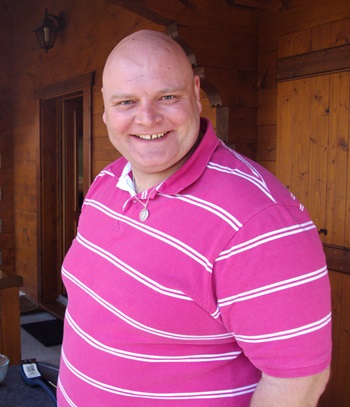THE HEARTBROKEN family of a man who died after he was treated by a Solihull air ambulance worker have spoken of their grief.
Lee Hanstock from Barton under Needwood in Staffordshire died in Queen’s Hospital in Burton-upon-Trent after he was given an excessive dose of a sedative by Dr Carl McQueen following a series of seizures in his home in December 2015.
South Staffordshire coroner Andrew Haigh recorded a narrative conclusion of death due to ‘natural causes where the death could have been avoided through suitable treatment’ and referred to several ‘missed opportunities’ in his concluding remarks.
Lee’s partner of 15 years, Amy Tipper, said: “Lee was a wonderful caring father, son and partner with a big personality who filled our lives with love, laughter and fun.
“It is devastating to know that his death was avoidable and that had appropriate treatment been provided our family would still be complete.”
Dr Carl McQueen, the air ambulance doctor who treated Mr Hanstock tragically committed suicide in February 2016 after finding out the circumstances surrounding his death were to be investigated.
A Serious Untoward Incident report by the West Midlands Ambulance Service Trust cited an excessive dose of thiopentone, a sedative, given to Mr Hanstock by Dr McQueen as a factor in his death.
Amy’s brother Joe Tipper, said: “The actions of Dr McQueen, for whose family we have nothing but the greatest sympathy for their equally tragic loss, were well documented.
“However, what makes our loss even harder to bear is the knowledge that it could have been prevented at a much earlier stage.”
The inquest heard the father-of-four had never before been known to have ill-health and had not seen a GP for 15 years.
The 43-year-old saw an out of hours doctor two days before his death and was diagnosed with critical hypertension – he was taken to A&E and was given a series of treatments to attempt to bring his blood pressure under control.
The inquest heard that six hours after he went into hospital, he was discharged despite the fact he still had high blood pressure.
In the morning of December 30 Lee had a fit which lasted for about one minute and an ambulance was called.
He had two further seizures while the ambulance crews were present and he was then given a sedative so the paramedics could safely transport him to hospital.
This caused Lee to go into cardiac arrest following which he was loaded into the ambulance and taken to Queen’s Hospital once again where he was pronounced dead at 9.50am.
In his report Dr Norell, a consultant cardiologist, suggested that, had actions appropriate to the timely diagnosis and treatment of critical hypertension been taken and Lee admitted as inpatient when he first was seen in A&E, even if his neurological deterioration did happen he would at least have been in a hospital environment and therefore it was more likely that he would have survived.













